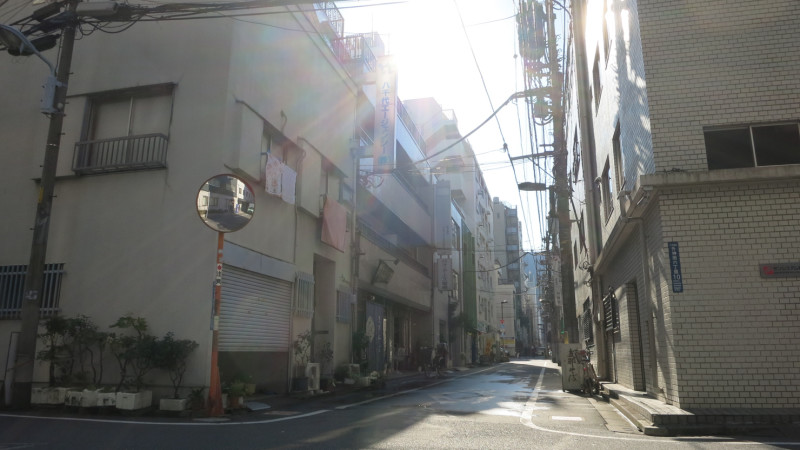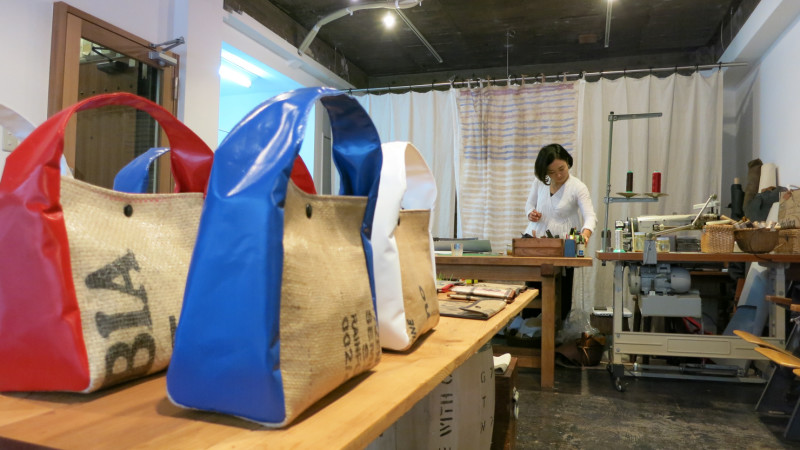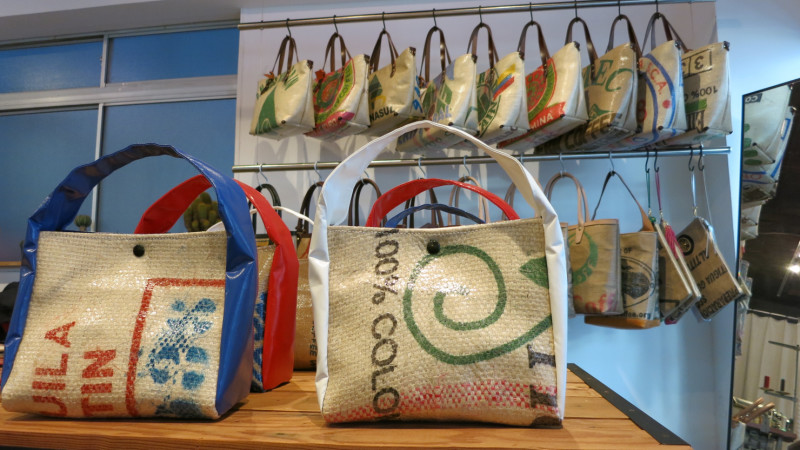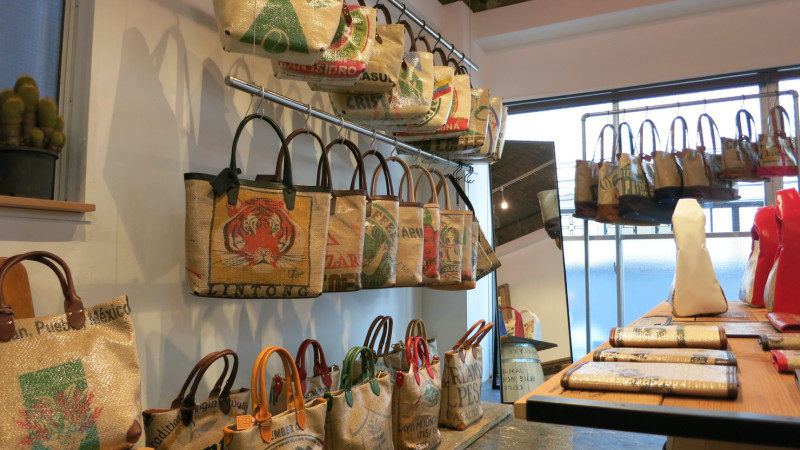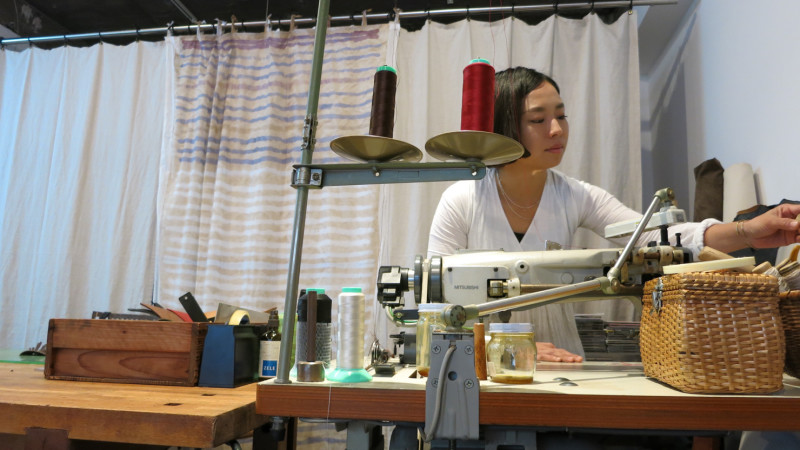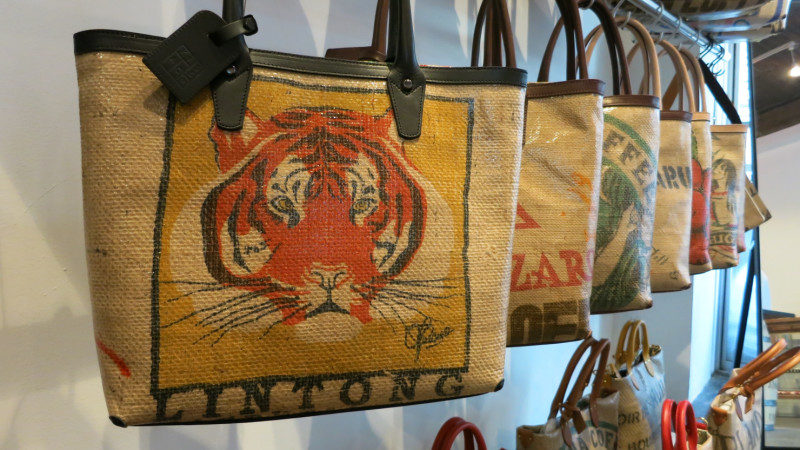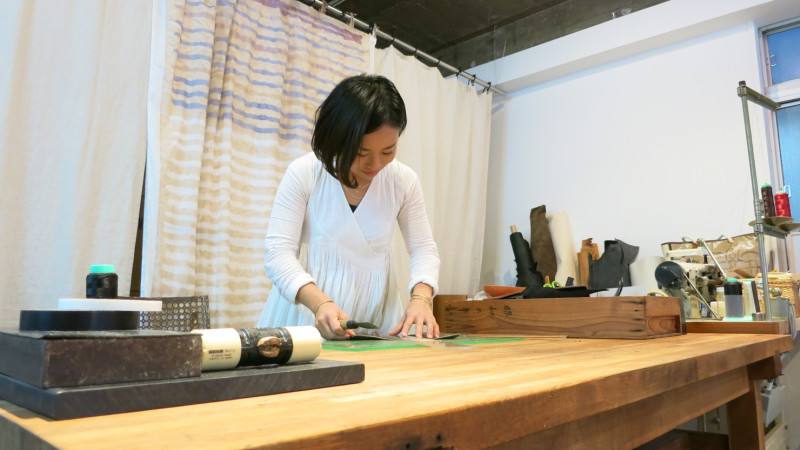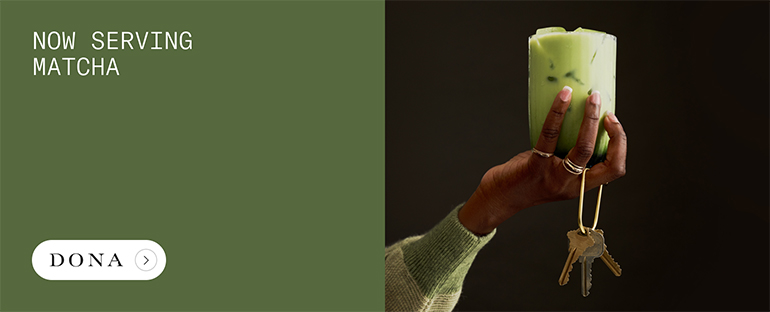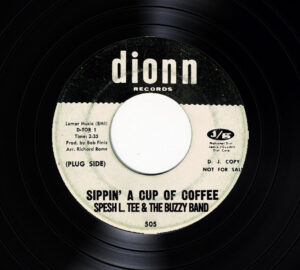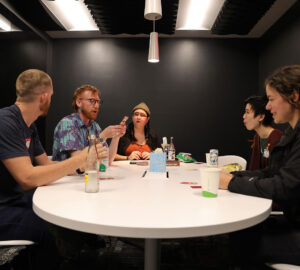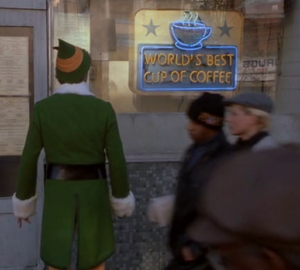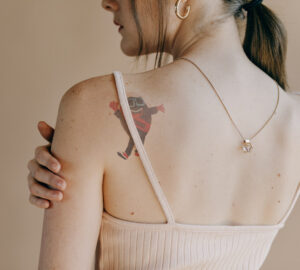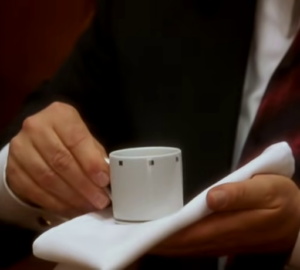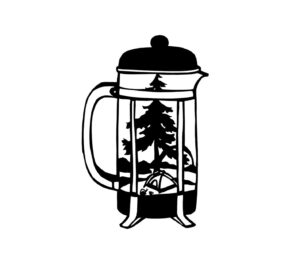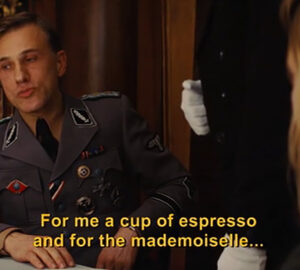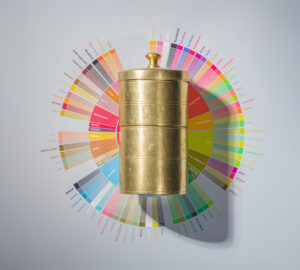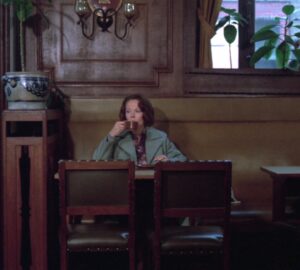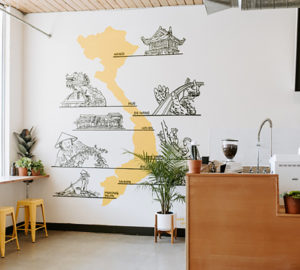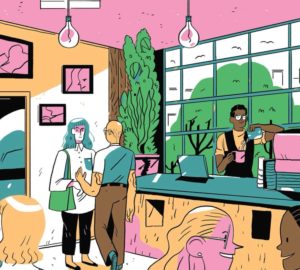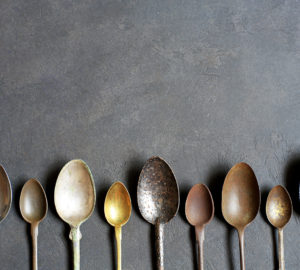Yuri Okamoto meets me in front of a quiet old building in the Sotokanda neighborhood of Tokyo. The streets are quiet, and sun filters through the space between buildings. The city was waking. Okamoto leads me up a narrow set of stairs and unlocks the door to her studio and retail space, Khohi.
“I usually open two or three times a week,” she says. “It’s best to call up and see if I’m here before making the trip. All the regulars do that.”
She makes some tea as I look around, regarding her handiwork. Racks line the walls, each filled with her Kissaco bags—simple combinations of leather and burlap, formerly coffee sack. Though their basic design is similar, no two bags are alike. Each tells a unique story: Swiss Water, Antigua Coffee, Ogawa Coffee—old names reborn on the fronts of her bags.
It was traveling in Asia that sparked Okamoto’s desire for a job she could do anywhere, and craftwork appealed to her personality. For a time she worked at a publishing company by day while she learned bag-making by night. One day her father found a burlap sack on a business trip to a roastery, and when he showed it to his daughter, it created a spark.
Okamoto designed the first bags with simplicity in mind. Over time she fine-tuned them, talking with customers to make improvements: smoother textures, more comfort, more durability. Maintaining this direct connection to her customers is why Okamoto hasn’t gone the mass-production route. “I’ve had people tell me I should make this into a bigger enterprise,” she says. “And you could mass-produce the bags and send them all over the world. But if I were to do that, the quality would drop, and I wouldn’t be able to talk with each customer anymore. I didn’t want that. I wanted my own store, where I could talk to people and learn what they wanted—because I could [respond to] that, and make each customer even happier the next time they came.”
Okamoto had another revelation on a trip to Bali in 2015, when she saw the silk-screening process for the first time. She watched a small group work together coloring and creating a single burlap sack. She says it was heartbreaking to her that such effort and craftsmanship would ultimately go unappreciated, which is why Okamoto tries to make her own craftwork subtle, invisible, and understated—if she’s done her job well, it’s the coffee bag that catches your eye first. It’s only later that you notice the quality she put into its construction.
Burlap isn’t the only reclaimed/repurposed aspect to Kissaco: the machinery Okamoto uses is bought on the cheap from retiring craftspeople, as are the thread and leather—Okamoto says if she didn’t use them for her bags, the materials would simply be thrown away. “I don’t really buy new things. There’s a lot [of material] that companies simply won’t use anymore, so I take it off their hands. I’ve built up a network like that. Basically, I accept what others are getting rid of, and use what can still be used.” The upcycled synergy that comes from applying a craft to something produced by the hard work of others—in such a way that someone else might come to cherish it—is at the heart of Kissaco and Khohi (which means “love,” written “kohi” in Japanese).
“I want to collect all the things that spark that feeling of love, and have them here. The glassware [here at Khohi] is from overseas, and there are things my friends made; I want to display what I like and love, so I named my studio after that idea. Khohi is about wanting to live by doing what I love.”
Hengtee Lim (@Hent03) is a Sprudge.com staff writer based in Tokyo. Read more Hengtee Lim on Sprudge.











